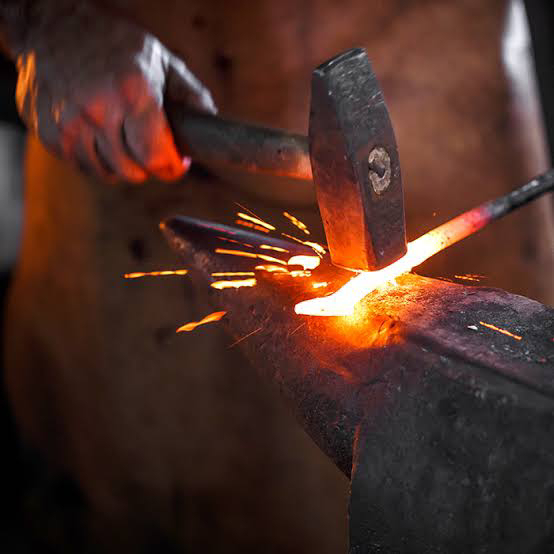ALMOST THERE THOUGH THROUGH THE HARD WAY
The concept of "iron sharpens iron" obviously implies one man sharpening another. In the context of the Zaar struggle, it could be impossible for one idea/opinion to be achieved without the presence of the other. Left isolated, both blades (opinions) will be dull and quite useless. This simple proverb illustrates an important biblical principle. God expects us to live and serve in our community, tolerating different ideas/opinions.
The process of helping someone to improve their effectiveness in achieving a common goal requires constructive criticism in a positive relationship. A chapter in the book of Proverbs says, "Faithful are the wounds of a friend, but deceitful are the kisses of an enemy." I know this teaching to be true; it is better to accept advice or even constructive criticism from someone we know, someone we love, and someone we know cares about us than it is from a stranger or simple acquaintance.
Friends and brothers may indeed wound us at times, but we can understand and appreciate their genuine motives conversely. We need people who can help us smooth out the rough edges and who honestly have our collective interest in mind when they do it.
There are times when this sharpening conversation, even from a loving brother or friend, can come across as harsh, mean, or judgmental, but it definitely helps to know that this person cares and has a genuine interest in helping us achieve the common goal.
PRINCIPLES OF IRON SHARPENS IRON
Principle of accountability:
This requires a personal inclination to allow significant others to look closely enough into our matters so that they can see the specific weaknesses or problem areas. Genuine accountability requires that the person receiving the counsel or advice is willing to allow the friend or brother to look for the vulnerabilities in their opinions, accept what they may point out, and then do something to fix it.
Principle of motivation:
This means that one person can be used by God to help the other. The incentive here is to be mutually beneficial. Both pieces of iron (opinion) must work together to achieve the desired end. Both opinions need sharpening, and this sharpening must come with a heartfelt desire to help one another and in the process receive input for improvement and achievement.
Principle of willingness:
Here, both parties should want what is good for each other, making it imperative to accept each other's counsel/advice or constructive criticism with an attitude of willingness and acceptance.
In conclusion, I charge us, the Nobles, to evangelize to other Zaarites about the need to tolerate each other's different opinions in pursuing any of our common goals in the spirit of love and brotherhood.
-
Sommidah Ayuba




Comments
Post a Comment